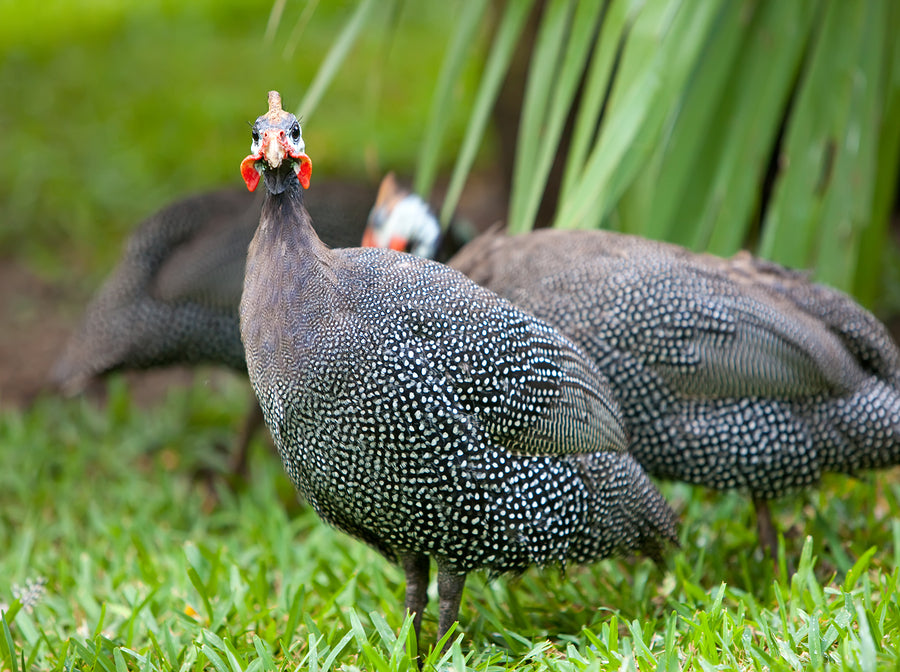Guinea fowl are domesticated birds that belong to the family Numididae. There are several species of guinea fowl, but the Helmeted Guinea fowl (Numida meleagris) is the most common and widely kept in captivity. Here are some key characteristics and reasons why guinea fowl are considered beneficial for farms:
1. Insect Control: Guinea fowl are excellent foragers and have a great appetite for insects, ticks, and other pests. They help control the insect population on the farm, contributing to pest management without the need for chemical pesticides.
2. Alertness and Watchfulness: Guinea fowl are known for their keen sense of alertness and their loud, distinctive calls. They serve as natural "watchdogs" on the farm, alerting other poultry and animals to potential threats such as predators. Their vigilance can be an added layer of security for other farm animals.
3. Low Maintenance: Guinea fowl are relatively low-maintenance birds. They are hardy and can adapt to various climates. They are also good foragers, which means they can find a significant portion of their food by themselves, reducing the need for expensive feeds.
4. Disease Control: By consuming insects and ticks that may carry diseases, guinea fowl contribute to disease control on the farm. This can be particularly beneficial in areas where certain diseases are prevalent.
5. Weed Control: In addition to insects, guinea fowl also eat weed seeds, contributing to weed control on the farm. This can be especially helpful in maintaining a cleaner and more manageable environment.
6. Natural Fertilization: Guinea fowl droppings are rich in nutrients and can serve as a natural fertilizer for the soil. This can enhance the fertility of the land where they roam.
7. Entertainment: Guinea fowl are known for their lively and social behavior. They can add an element of entertainment and character to the farm, making them enjoyable for farmers and visitors alike.

